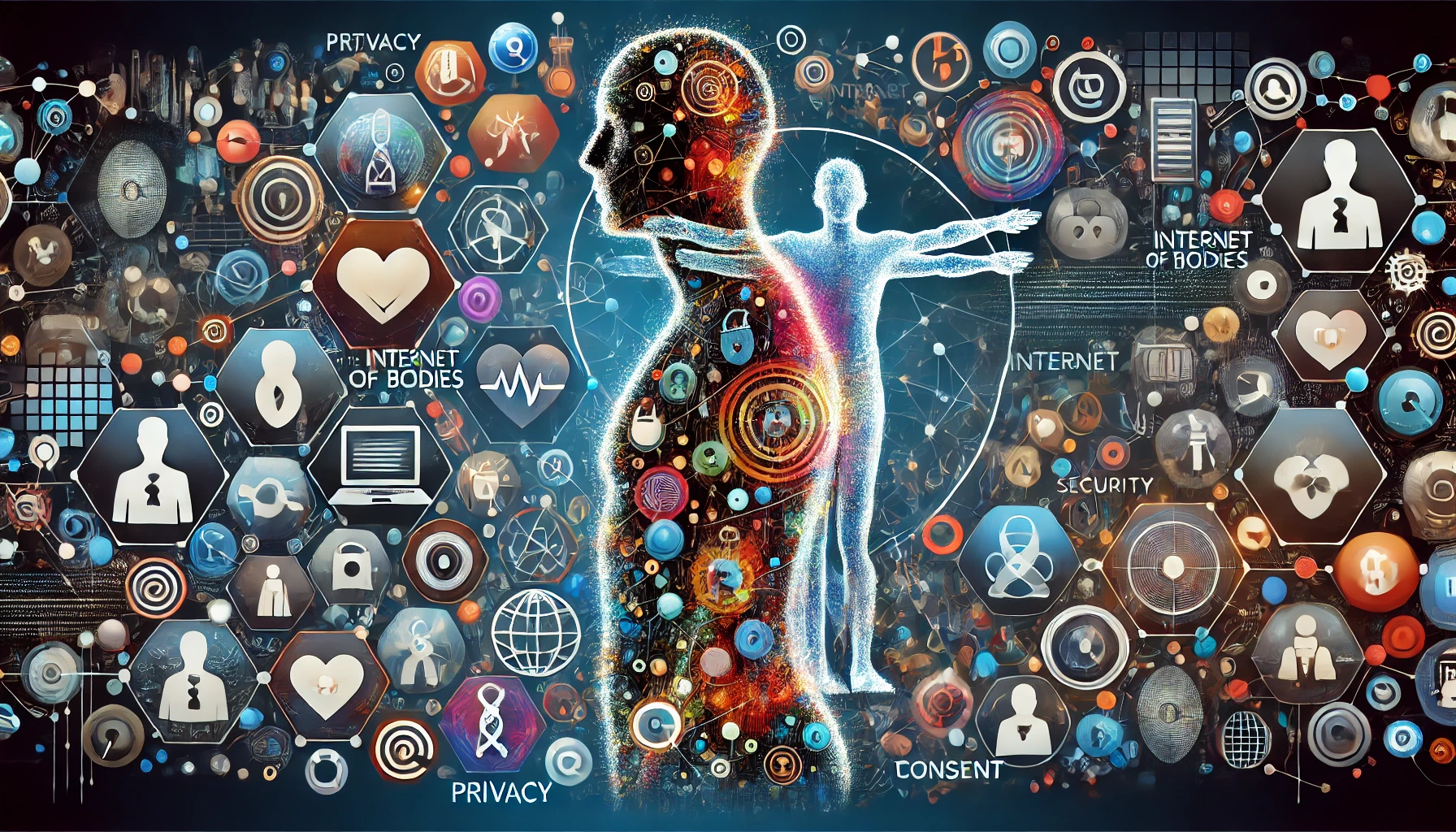Iofbodies.com Ethics Navigating the Complexities of the Internet of Bodies
The Internet of Bodies (IoB) is transforming healthcare, medical research, and personal well-being by integrating human bodies with digital technologies. iofbodies.com ethics, a platform dedicated to connecting individuals with body donation programs for medical research, plays a crucial role in this shift. However, as the IoB ecosystem expands, there are significant ethical questions that must be addressed. This article delves into the ethics of IOFBodies.com, exploring critical concerns such as privacy, consent, commercialization, and the potential societal impacts of integrating the human body with digital networks.
Understanding the Internet of iofbodies.com ethics
What is the Internet of Bodies (IoB)?
The Internet of Bodies refers to a network of connected devices that gather, transmit, and store data from the human body. These devices include wearable sensors, implantable medical devices, smart prosthetics, and ingestible technologies. The IoB is an extension of the broader Internet of Things (IoT), but it focuses on collecting real-time, personal data directly from the body.
The data gathered can include a wide range of biological information, such as heart rate, temperature, movement, glucose levels, and even brain activity. This information is then transmitted to healthcare providers, research institutions, and technology companies, where it is analyzed to improve treatment, enhance medical research, and personalize healthcare.
The Role of IOFBodies.com in IoB
IOFBodies.com is a digital platform that connects individuals who wish to donate their bodies or body parts for medical research. These donations are typically used for studies related to organ transplants, disease research, and medical education. As the IoB continues to grow, platforms like IOFBodies.com become central players in the ethical debates surrounding body data, privacy, and commercialization.
The integration of IoB technologies with body donation services introduces complex ethical challenges. It is important to understand how these ethical issues are navigated on iofbodies.com ethics and within the broader IoB landscape.
Core Ethical Principles in the Internet of Bodies
Informed Consent
One of the fundamental ethical principles in medical and research settings is informed consent. For IoB technologies, this principle becomes especially important due to the sensitivity of the data being collected. Individuals must be fully aware of what data is being gathered, how it will be used, and the potential risks involved.
Key Aspects of Informed Consent:
- Transparency: Users must be provided with clear and accessible information about how their data will be used.
- Autonomy: Individuals should have the freedom to make decisions about the use of their data.
- Revocation: Users should be able to withdraw consent at any time, ensuring that they maintain control over their data.
For iofbodies.com ethics, this means ensuring that those donating their bodies for research purposes understand exactly how their remains will be used, who will have access to their data, and whether any profit will be made from their donations.
Privacy and Data Security
The massive amounts of data collected by IoB technologies introduce significant concerns about privacy and data security. Sensitive health data, including genetic information and biometric data, is vulnerable to misuse if not properly protected. This data could be exposed to hackers, or even used unethically for purposes that individuals did not consent to.
Key Considerations:
- Data Encryption: Ensuring that all data collected is encrypted and stored securely.
- Access Controls: Limiting who can access personal data and ensuring that only authorized individuals are permitted to use it.
- Data Minimization: Collecting only the data necessary for the specific purpose, reducing the risk of exposing unnecessary information.
IOFBodies.com must implement robust security protocols to protect the personal information of donors and ensure that their data is not misused, particularly in cases where body donations are tied to sensitive medical research.
Autonomy and Control Over Data
Another core ethical issue in IoB technologies is user autonomy—the right for individuals to maintain control over their data. This principle involves ensuring that users can control how, when, and by whom their data is accessed and used.
Key Aspects:
- User Empowerment: Users should be empowered to decide how their data is shared and used, including body data for medical research.
- Data Portability: Giving users the ability to move their data across platforms or services if they wish to change providers or revoke access.
- Privacy Settings: Clear, understandable settings that allow users to limit the amount of information shared.
As IOFBodies.com facilitates body donations, it must ensure that donors’ preferences regarding data privacy and usage are respected. This includes providing options to opt-out or restrict the sharing of data related to body donations.
Ethical Issues with iofbodies.com ethics
Commercialization of Body Donations
A major ethical concern surrounding IOFBodies.com is the commercialization of body donations. While body donations have traditionally been viewed as altruistic acts, there are growing concerns that body parts or data could be commodified for profit.
For example, if researchers or companies profit from body parts or data without compensating the donors or their families, it can raise significant ethical dilemmas. Donors should be made aware of any financial transactions, and transparency is critical to ensure that they are fully informed.
Ethical Considerations:
- Transparency in Financial Transactions: IOFBodies.com should clearly disclose how donations are used, who benefits, and if any financial compensation is involved.
- Non-Exploitation: Ensuring that individuals are not exploited for their bodies or data, particularly in marginalized or vulnerable communities.
Cultural and Religious Sensitivities
Body donation and the use of body data may conflict with cultural and religious beliefs. Different communities hold varying views on the sanctity of the body and whether it can be used for scientific or medical purposes after death. iofbodies.com ethics must be sensitive to these beliefs and provide respectful, culturally appropriate options for users.
Key Points:
- Respecting Religious Beliefs: Offering alternative pathways or ensuring that users are fully aware of the ethical implications of body donation within their cultural context.
- Offering Informed Choices: Allowing users to make informed decisions that align with their personal, cultural, and religious values.
Data Privacy and Protection
With the increasing reliance on digital platforms like IOFBodies.com, ensuring data privacy and protection is paramount. Personal information, especially medical data, is highly sensitive and must be carefully protected. The platform should adhere to strict data protection laws and implement best practices for cybersecurity.
Key Considerations:
- GDPR Compliance: Adhering to the European Union’s General Data Protection Regulation (GDPR) ensures that donors’ data is handled ethically and legally.
- Secure Storage: Using state-of-the-art encryption and secure storage methods to safeguard donor information.
Navigating Ethical Challenges in IoB Development
Balancing Innovation with Ethical Responsibility
As IoB technologies continue to evolve, innovation must be balanced with ethical responsibility. While the potential benefits of IoB are significant, they should not come at the expense of individual rights or societal values.
Key Aspects:
- Ethical Oversight: Platforms like iofbodies.com ethics should implement ethical review boards to evaluate new technologies and ensure that they align with ethical guidelines.
- Stakeholder Engagement: Involving a wide range of stakeholders, including users, ethicists, and policy makers, in the development of IoB technologies.
Regulatory Compliance and Standards
To ensure ethical practices, IoB technologies must comply with existing regulations and adopt universal ethical standards. This includes data protection laws, consent protocols, and safety standards for medical devices. IOFBodies.com must be diligent in adhering to these laws and setting industry standards for responsible data handling.
Regulatory Challenges:
- Global Standards: IoB is a global phenomenon, and different countries may have different legal frameworks. Ensuring compliance with international regulations can be a challenge for platforms operating globally.
- Adaptability: As new laws are introduced, platforms must be able to adapt quickly to changing legal requirements.
Conclusion
As IoB technologies continue to transform the healthcare landscape, platforms like iofbodies.com ethics must navigate the complex ethical terrain surrounding body donations and data collection. By adhering to core ethical principles such as informed consent, privacy, and autonomy, IOFBodies.com can contribute to the responsible development of the Internet of Bodies. Ensuring transparency, protecting user data, and respecting cultural sensitivities are critical to building trust and ensuring that these technologies serve the greater good without compromising individual rights.
With continued attention to ethical challenges, the future of the Internet of Bodies can be both innovative and responsible, paving the way for advancements in healthcare while safeguarding fundamental human rights.






